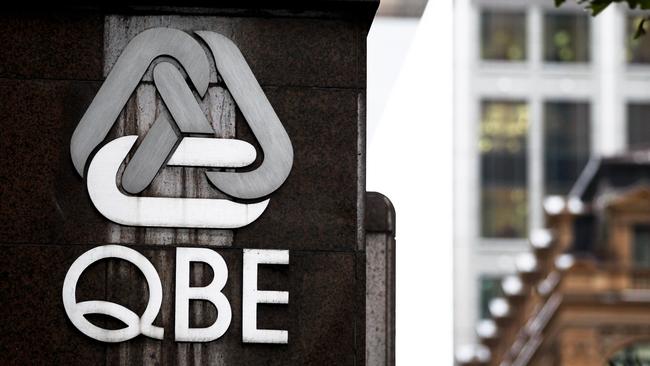Reporting season: Signs emerging of ‘earnings exhaustion’, says UBS
As reporting ramps up this week, strategists paint a picture of peaking earnings growth, leading investors to lose patience.
Business
Don't miss out on the headlines from Business. Followed categories will be added to My News.
Analysts are revising down their earnings estimates for ASX-listed companies before an economic slowdown driven by a rapid increase in interest rates after the post-pandemic boom.
As reporting ramps with about half of the top 200 companies due to report this week, strategists paint a picture of peaking earnings growth, leading investors to lose patience with companies that are unable to live up to expectations and switch to those with more reliable earnings and dividends.
The S&P/ASX 200 share index has fallen about 2 per cent since the December half-year reporting season began four weeks ago. Much of the fall has been due to interest rate expectations after hawkish RBA statements, as well as a sharp fall in CBA amid signs that its net margins have peaked.
CBA shares bounced off their 200-day moving average near $101 on Monday – amid solid earnings from Bendigo Bank – but may retest that level on Wednesday when they trade ex-dividend.
CBA has fallen as much as 10 per cent after hitting a record high of $111.43 early this month.
But compared to earnings seasons in the past three years, the Australian market in recent weeks has been “weak”, according to UBS equity strategist, Richard Schellbach.
Earnings beats outnumber misses, but analysts are consistently downgrading estimates.
A downward skew to revisions is clearly observable for both fiscal years 2023 and 2024, and “reflects an analyst community that sees an economy past its peak and signs of earnings exhaustion”, Schellbach says.
Australia’s low unemployment rate is preventing a “consumer cliff”, for now. But with more interest rate hikes and a big reset of many mortgage borrowers who took at face value the RBA’s assurances that rates were unlikely to rise before 2024, the outlook for consumer spending will only get tougher.

Domain, JB Hi-Fi, Southern Cross Media and Temple & Webster were among consumer-facing companies citing depressed activity since the start of the year.
But the story remains mixed given that the trading updates from Bapcor, Endeavour Group, GUD Holdings and Super Retail have shown a consumer that’s still willing to spend.
“Discretionary retailers have acknowledged an increasing reluctance from customers towards making big-ticket purchases, while Wesfarmers’s result saw clear signs of consumers ‘trading down to Kmart’,” Schellbach says.
He warns of a growing risk that many companies won’t be able to meet their earnings guidance.
“Reporting season has seen a contrast between corporates, whom for the most part are still putting on a brave face, and investors, who in most instances are showing an increased wiliness to exit cyclical businesses in preference of defensive stocks,” he says.
Echoing his concern that earnings may have peaked is his observation that many companies that have missed expectations for December half-year guidance have failed to commensurately adjust down their full-year guidance. It will be hard to catch up in a deteriorating economy.
For these companies the bar they have now set for second-half earnings looks challenging in light of a domestic economy which is already losing momentum, and has significant challenges over the coming six months via further RBA rate hikes, and a record amount of fixed rate mortgage resets.
The “rolling over” of bank shares last week fits the strategy UBS laid out in January – that this stage of the cycle won’t reward banks and their shareholders, that net interest margin expansion amid rate hikes “seemed fully baked into share prices”, and that bad-debt risk did not seem priced in. In contrast, the insurance sector looked underappreciated leading into results, which has facilitated a momentum shift from banks to insurers.
QBE shares surged 3.7 per cent to a three-year high of $14.92 on Monday.
“The CBA result on Wednesday was undeniably strong … nevertheless, expectations always sit high when you’re among the world’s most expensive banks, and hence the mega-cap saw its share price fall sharply as investors got spooked that net interest margins may have already peaked.” Schellbach says. In contrast, the insurance sector looks “underappreciated”, and presents a compelling rotational opportunity given the sector was sitting at its widest valuation discount to banks in 20 years.
“Within the sector QBE has been one of our favoured, and Friday’s strong result – which saw both earnings and dividend beat – illustrates the point that momentum within the financials sector has now shifted from the banks to the insurers,” Schellbach says.
Similarly, Macquarie Equities strategist Matthew Brooks says it’s “hard to make a bull case for stocks when the Fed and RBA are likely to tighten further, causing a rise in real yields that pressures already high price-to-earnings multiples and we are in an earning per share downgrade cycle.”
Domestic cyclicals have been the “stars of results season”, as the feared spending slowdown due to rate hikes, rising costs and falling house prices has yet to occur.
“We still expect a slowdown due to the lagged effect of prior hikes and the rollover of fixed mortgages but results are better than expected,” Brooks says.
Twice as many reporting companies have had their fiscal year 2023 earnings per share estimates downgraded by Macquarie than those that have been upgraded.
More Coverage
Originally published as Reporting season: Signs emerging of ‘earnings exhaustion’, says UBS





